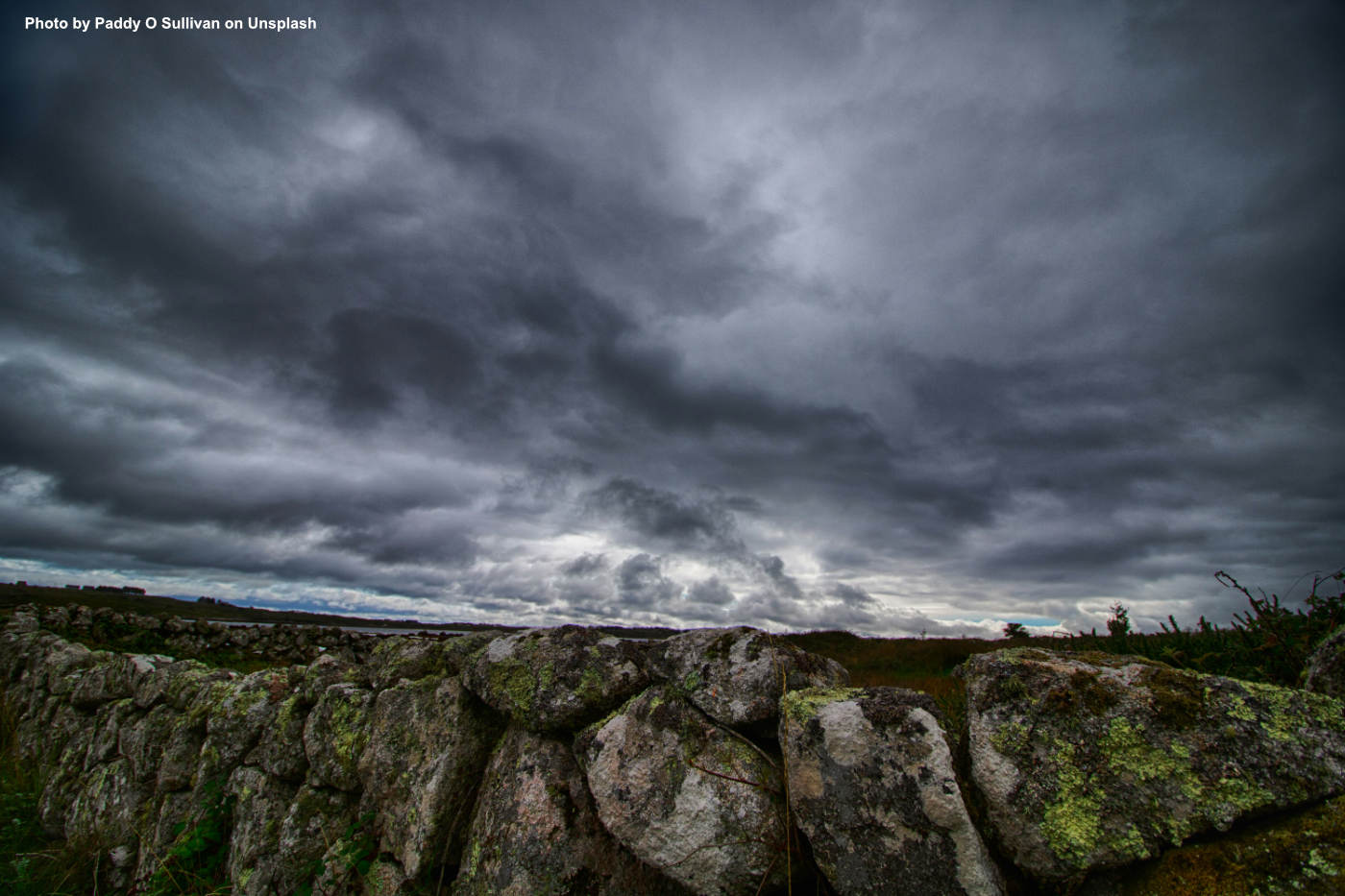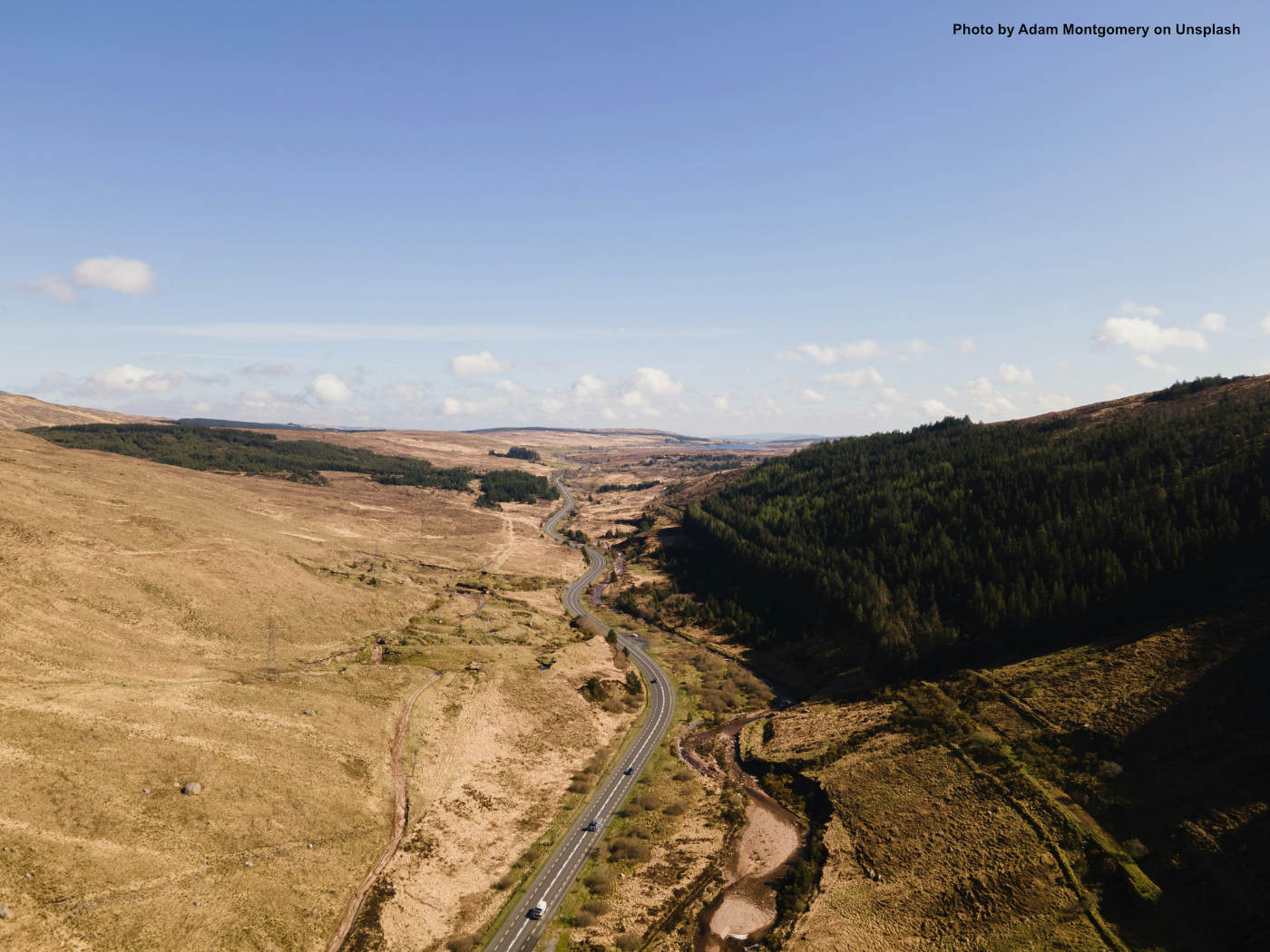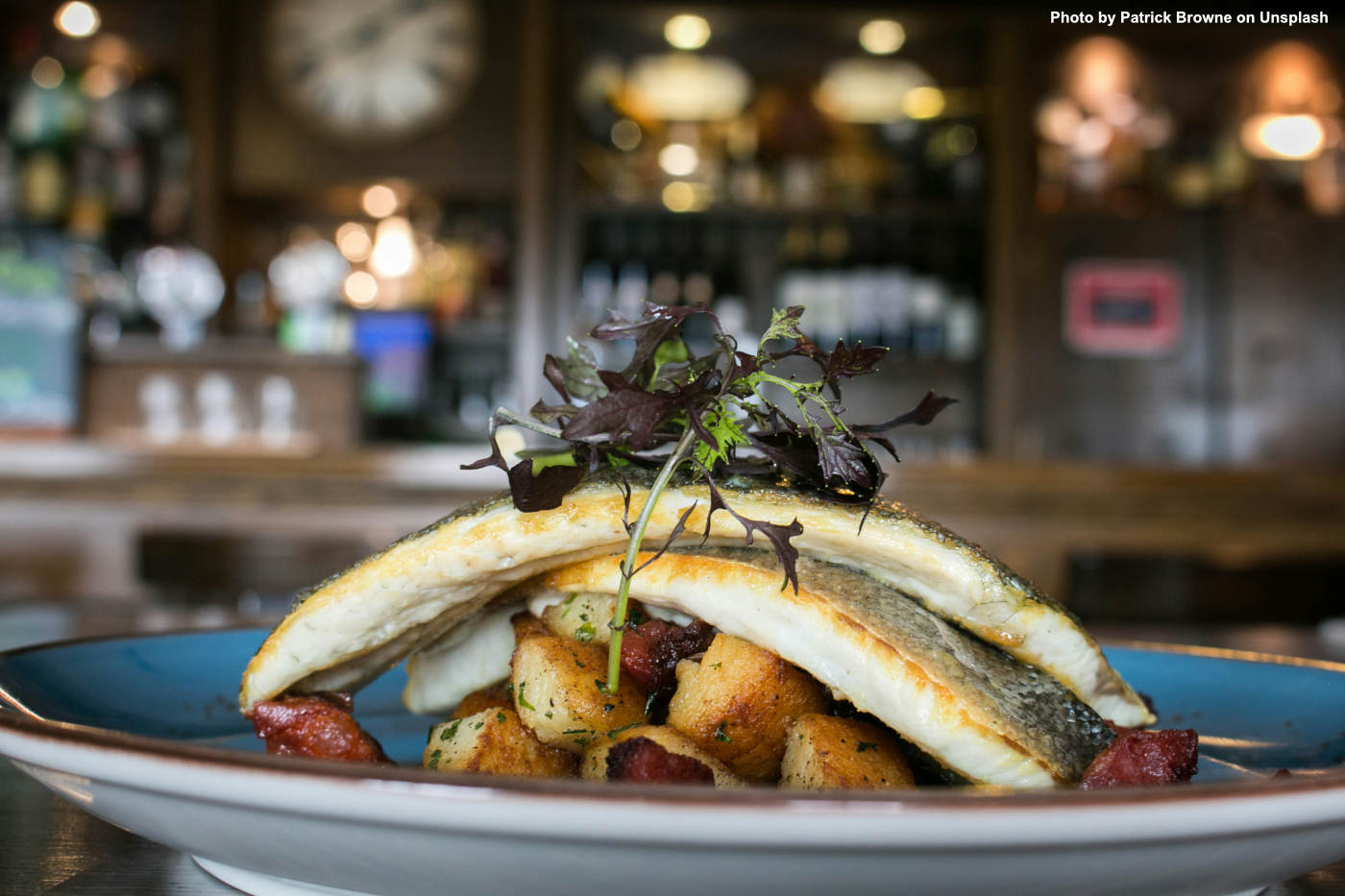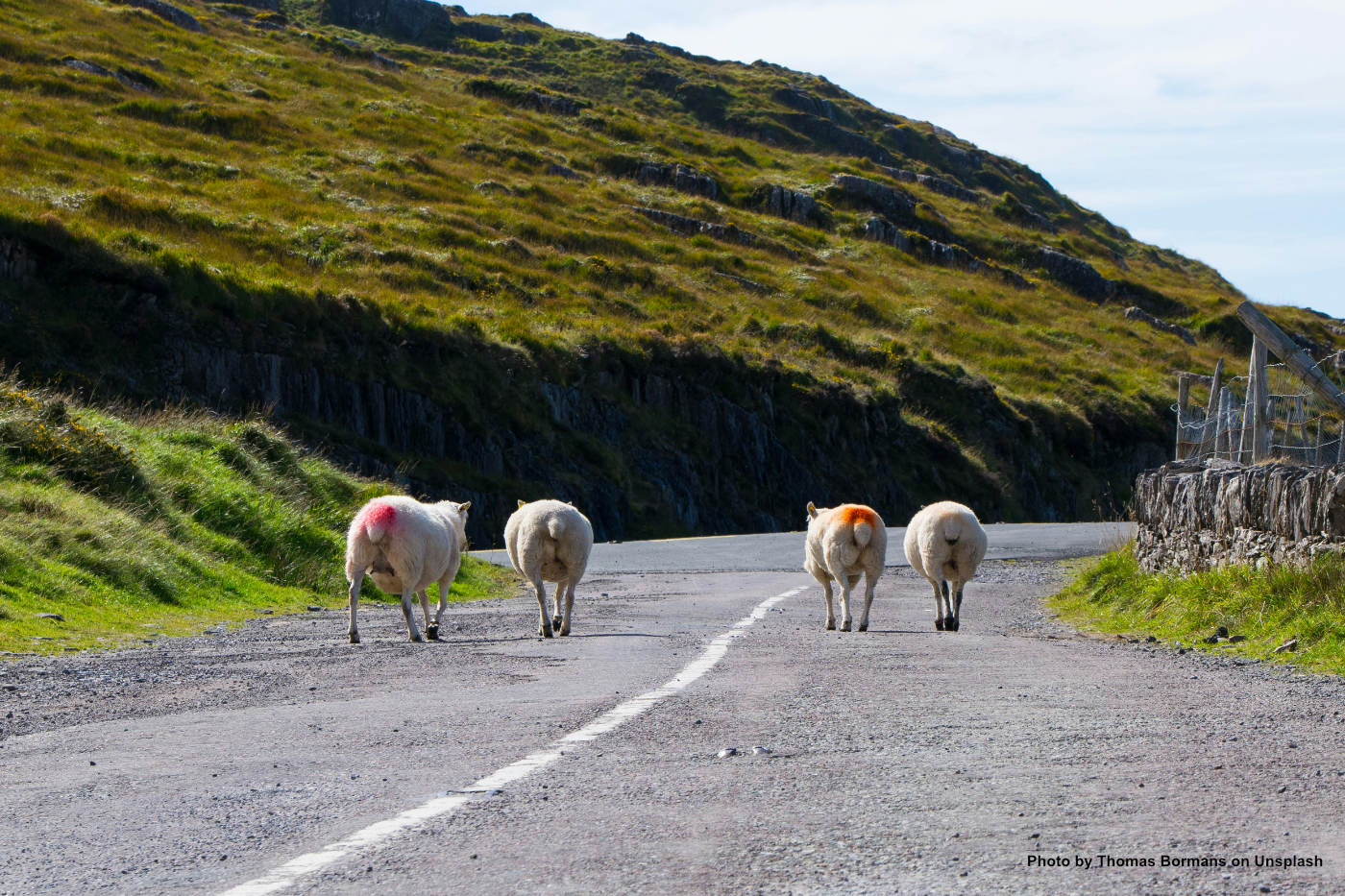Ireland, known for its breathtaking landscapes, historic castles, and warm hospitality, is a destination that promises unforgettable experiences. However, there are several things to know when traveling to Ireland to ensure a smooth and enriching trip. From understanding visa rules and weather patterns to immersing yourself in Irish culture and etiquette, being well-prepared will help you enjoy the Emerald Isle to its fullest.
This guide delves into everything you need to know, covering practical tips, cultural insights, and essential travel advice. Whether you’re strolling through Dublin, driving along the Wild Atlantic Way, or enjoying the vibrant “craic” (fun) in a local pub, this article will equip you with the knowledge to navigate Ireland like a pro.
This article is part of our Planning a Trip to Ireland section, where you’ll find even more resources to help you organize your Irish adventure. To streamline your trip planning, consider using the Personal AI Ireland Itinerary Creator, which tailors itineraries to your preferences and offers expert insights into the things to know when traveling to Ireland.
Visa Regulations and Travel Documents for U.S. Citizens

Passport Validity
Your passport is your most critical travel document and one of the top things to know when traveling to Ireland. For visiting Ireland, it should ideally be valid for at least six months beyond your travel dates. While Ireland does not strictly enforce the six-month rule, some airlines may require it for international travel. Ensure there are blank pages for entry stamps.
Length of Stay and Visa-Free Travel
U.S. citizens can enter Ireland visa-free for up to 90 days. However, you must provide evidence of onward travel and sufficient funds for your stay if asked. If you’re planning to visit Northern Ireland (part of the UK), no additional visa is required, but check UK-specific entry requirements before you travel.
Customs and Declarations
Be aware of customs rules when entering Ireland. Carry only permitted items, and declare any goods exceeding the duty-free allowance. This applies to alcohol, tobacco, and other restricted goods. Being aware of customs rules is an important aspect of the things to know when traveling to Ireland.
Health and Travel Insurance
Health insurance isn’t mandatory but is highly recommended. Ensure your policy covers medical emergencies abroad. Travel insurance for trip cancellations and lost belongings is also advisable.
Emergency Contact Information
Before departing, note emergency contact numbers, such as 112 or 999 for Ireland’s emergency services. Keep contact details for your country’s embassy handy as well.
Language: English with an Irish Twist
Irish Greetings
While English is the primary language, Irish (Gaeilge) remains a significant part of the country’s heritage. You’ll see it on road signs and public buildings, especially in Gaeltacht regions. Learn a few phrases like “Dia dhuit” (hello) and “Sláinte” (cheers) to connect with locals and show respect for their culture.
Everyday Irish Slang
Irish slang is colorful and unique. Words like “craic” (fun) and “grand” (fine) appear frequently in conversations. Phrases such as “What’s the story?” mean “How are you?” Engaging with Irish slang adds authenticity to your interactions and is one of the fun things to know when traveling to Ireland.
Gaeltacht Regions and Irish in Daily Life
In rural Gaeltacht areas, Irish is actively spoken. If you visit these regions, you’ll hear Irish in everyday life, adding a layer of cultural immersion to your travels. Even in cities, Irish words appear on menus, signs, and announcements.
Polite Conversation Styles
Irish people are known for their warmth and friendliness. Polite conversation is valued, and small talk is common. Avoid diving into sensitive topics like politics until you know someone better.
Written Language Differences
You may notice differences in written English, such as British spellings (e.g., “colour” instead of “color”). These subtle distinctions reflect Ireland’s linguistic ties to both its own Gaelic roots and British influence.
Currency and Money Matters
Currency and Exchange Rates
Ireland uses the euro (€), while Northern Ireland uses the pound sterling (£) and one of the more important things to know when traveling to Ireland. Be prepared to manage two currencies if your trip includes both regions. Research exchange rates and consider exchanging a small amount of cash before your trip.
Using Cash vs. Cards
Credit and debit cards are widely accepted, but some rural businesses prefer cash. ATMs are available in most towns, but notify your bank of your travel plans to avoid issues with card usage.
Tipping Etiquette
Tipping in Ireland is appreciated but not obligatory. Leave 10–15% at restaurants for good service, while in pubs, rounding up to the nearest euro is customary. For taxis and hotel staff, small tips are polite but not expected.
ATMs and Banking Hours
ATMs operate 24/7 in urban areas, but smaller towns may have limited access. Banks are typically open Monday to Friday, so plan accordingly if you need banking services.
Tax Refunds for Shoppers
If you’re shopping in Ireland as a non-EU visitor, you may be eligible for a VAT refund. Keep your receipts and inquire about tax-free shopping at participating retailers.
Weather and When to Visit

Seasonal Weather Patterns
Ireland’s weather is famously unpredictable, which adds to its charm. You might experience sunshine, rain, and mist all in the span of an hour. The climate is mild, with summer temperatures averaging between 60-70°F (15-20°C) and winter rarely dropping below 40°F (5°C). Rain is a common companion year-round, so packing waterproof clothing is essential.
The unpredictable nature of Irish weather is often a topic of local humor. Locals recommend layering clothing so you can adapt to the changing conditions. Carrying a compact umbrella or rain jacket ensures you’re ready for sudden showers, one of the most practical things to know when traveling to Ireland.
Best Time to Visit
While Ireland is beautiful year-round, the best time to visit depends on your preferences. Summer (June-August) offers longer daylight hours and a packed calendar of festivals. However, it’s also the busiest season, with higher prices and crowds.
Spring (April-May) and autumn (September-October) are excellent alternatives, offering milder weather and fewer tourists. Winter (November-March) is quieter, making it ideal for travelers seeking a peaceful escape, though shorter days may limit sightseeing opportunities. Understanding the seasonal variations is one of the key things to know when traveling to Ireland for planning the perfect trip.
Packing Essentials
Packing for Ireland requires preparation for all weather possibilities. In addition to waterproof gear, pack sturdy walking shoes, warm layers, and versatile clothing. A scarf and hat can be useful even in summer, especially if you plan to visit windy coastal areas or highland regions.
Daylight Hours
Daylight hours vary significantly by season. In summer, days can stretch past 10 p.m., allowing ample time for exploration. In winter, daylight hours are much shorter, with the sun setting as early as 4:30 p.m. Being aware of these shifts can help you plan your daily activities effectively.
Weather Apps and Resources
Reliable weather apps like Met Éireann and AccuWeather can provide daily updates tailored to your location. Checking the forecast each morning is a smart way to stay prepared. Knowing how to adapt to Ireland’s ever-changing weather is one of the most practical things to know when traveling to Ireland.
Driving on the Left: Navigating Ireland’s Roads

Car Rental Requirements
Renting a car in Ireland is straightforward, but there are some important rules to note. Drivers must be at least 21 years old, though some rental companies have a higher minimum age. An International Driving Permit (IDP) isn’t mandatory for U.S. citizens, but it’s helpful if your license isn’t in English.
When renting a car, opt for additional insurance to cover potential damage. Ireland’s rural roads can be narrow and winding, and many vehicles have manual transmissions, so specify if you prefer an automatic car. Renting a smaller car can make navigating these roads easier—one of the most practical things to know when traveling to Ireland if you’re driving.
Understanding Road Signs
Irish road signs are written in both English and Irish, which may look unfamiliar at first. Speed limits are displayed in kilometers per hour (km/h) in the Republic of Ireland and miles per hour (mph) in Northern Ireland, so pay close attention when crossing the border.
Be cautious on scenic routes like the Ring of Kerry, where sharp bends and narrow roads require extra care. Mastering road signs and traffic rules is essential for safe driving and one of the vital things to know when traveling to Ireland.
Toll Roads and Charges
Several motorways in Ireland have tolls, typically costing between €1.90 and €3.10. Payment can be made at toll plazas, but the M50 near Dublin uses an electronic toll system. Be sure to check whether your rental car includes toll fees or if you’ll need to manage them independently.
Parking Tips
Parking in cities like Dublin and Galway can be challenging. Use designated parking lots or garages, and always check time limits for street parking. In rural areas, parking is generally more accessible but ensure you’re not blocking private driveways or narrow roads.
Public Transportation Alternatives
If driving isn’t for you, Ireland offers excellent public transport options, including buses, trains, and regional coaches. The Leap Card, a reloadable travel card, is convenient for city travel. Knowing these alternatives is among the helpful things to know when traveling to Ireland for non-drivers.
Irish Culture and Etiquette: How to Blend In
Pub Culture and Ordering Drinks
Pubs are central to Irish culture, acting as social hubs where locals gather to relax, share stories, and enjoy live music. When ordering at the bar, wait for the bartender to notice you rather than calling out. Tipping in pubs isn’t required, but rounding up to the nearest euro is appreciated.
Joining in on the “craic”—Irish slang for fun—is part of the experience. Pubs often host traditional music sessions, where musicians play lively tunes while patrons tap along. Respect the atmosphere by keeping noise levels low during performances, as this is a cherished aspect of pub culture and one of the most enjoyable things to know when traveling to Ireland.
Social Norms and Manners
The Irish are known for their friendliness, but politeness is deeply valued. Greetings usually begin with a handshake, and using phrases like “please” and “thank you” is important. Humor is a big part of Irish interactions, so don’t be surprised if light-hearted teasing is part of the conversation.
It’s also polite to avoid sensitive topics like religion or politics unless you’re invited to discuss them. Showing respect for cultural boundaries is one of the most important things to know when traveling to Ireland, ensuring your interactions remain pleasant.
Dress Code Expectations
Ireland’s dress code is generally casual, but neatness is appreciated in restaurants and pubs. For formal occasions or upscale dining, smart-casual attire is preferred. Practical clothing is essential for outdoor activities, but even in relaxed settings, avoid overly revealing outfits, as this may stand out.
Photography Etiquette
Ireland’s stunning scenery is perfect for photography, but it’s important to respect privacy and cultural sensitivities. Always ask for permission before photographing people or private property, and adhere to rules in historic or sacred sites where photography might be restricted.
Respecting Historical Sites
Many of Ireland’s landmarks, like Newgrange or ancient ring forts, are thousands of years old and hold immense cultural significance. Follow signage and tour guides’ instructions to ensure these sites are preserved for future generations. Respecting these spaces is one of the most critical things to know when traveling to Ireland.
Staying Safe: Health and Emergency Information
Emergency Numbers
Ireland has excellent emergency services, and dialing 112 or 999 connects you to police, fire, or ambulance services. Knowing these numbers is one of the fundamental things to know when traveling to Ireland, ensuring quick help if needed.
Medical Facilities and Pharmacies
Medical care in Ireland is of high quality. Pharmacies are widespread and can assist with minor ailments, but it’s wise to bring essential medications with you. For serious emergencies, public hospitals provide care, though travel insurance is recommended to cover costs.
Travel Vaccinations
No special vaccinations are required for Ireland, but ensure routine immunizations are up to date. If you have specific health needs, consult a healthcare provider before traveling.
Personal Safety Tips
Ireland is considered a safe country, but standard precautions apply. Keep valuables secure, especially in crowded areas, and be cautious with your belongings in tourist-heavy zones. Familiarizing yourself with local customs and surroundings is one of the most practical things to know when traveling to Ireland.
Travel Insurance Recommendations
Comprehensive travel insurance covering medical emergencies, trip cancellations, and lost belongings is highly recommended. It provides peace of mind, especially when navigating unexpected situations.
Electricity and Plug Adapters
Voltage and Plug Type
Ireland uses a 230V supply voltage and Type G sockets, the same as the UK. If you’re traveling from a country with a different plug type, bring an adapter.
Adapter and Converter Needs
Many modern devices, like smartphones and laptops, are dual voltage. However, double-check before use to avoid damage. A universal adapter is a smart investment for frequent travelers.
Charging Devices
Hotels and guesthouses usually have plenty of outlets, but packing a power bank ensures you stay connected during day trips. Understanding electricity needs is one of the practical things to know when traveling to Ireland, ensuring your devices remain charged.
Availability of Adapters Locally
Adapters are widely available for purchase in airports, electronics stores, and even supermarkets. It’s convenient to buy one upon arrival if you forget to pack it.
Hotel Electrical Amenities
Most accommodations provide basic electrical amenities, including hairdryers and kettles. If you have specific needs, confirm availability with your hotel in advance.
Staying Connected: Wi-Fi and Mobile Access
Mobile Network Providers
Ireland’s major mobile network providers include Vodafone, Three, and Eir. They offer reliable coverage in cities and towns, though rural areas may experience occasional signal drops.
SIM Card Options
Purchasing a local SIM card is an economical way to access data and make calls. SIM cards are available at airports and convenience stores, and prepaid plans offer affordable options for travelers.
Wi-Fi Availability
Wi-Fi is widely available in hotels, cafes, and public spaces, making it easy to stay connected. If you’re relying on Wi-Fi for navigation or planning, download maps and key resources in advance as a backup.
International Roaming Charges
Check with your provider about roaming charges, which can be expensive. Some providers offer international plans that include Ireland, reducing costs for data and calls.
Internet Cafes
While less common today, internet cafes still exist in larger cities like Dublin and Cork. They’re a useful option if you need a secure internet connection or printing services.
Irish Cuisine: Beyond Potatoes

Traditional Dishes to Try
Ireland’s culinary scene is rooted in hearty, simple dishes like Irish stew, soda bread, and colcannon. These meals are staples of Irish tradition and a must-try for first-time visitors.
Regional Specialties
Each region boasts its own specialties, from fresh oysters in Galway to boxty (potato pancakes) in the north. Sampling regional cuisine is one of the most enjoyable things to know when traveling to Ireland.
Dietary Restrictions and Preferences
Ireland’s dining scene accommodates a range of dietary needs, with vegetarian, vegan, and gluten-free options widely available. Most restaurants are happy to adjust dishes upon request.
Food Festivals and Events
Ireland hosts numerous food festivals celebrating its culinary heritage. Events like the Galway Oyster Festival and Taste of Dublin are perfect for foodies.
Cooking Classes and Culinary Tours
For a hands-on experience, consider taking a cooking class or joining a food tour. These activities offer insight into Ireland’s gastronomic traditions.
Things to Know When Traveling to Ireland
Traveling to Ireland is a rich, immersive experience filled with history, culture, and stunning landscapes. However, knowing the essential things to know when traveling to Ireland—from practical advice like driving on the left to cultural nuances like pub etiquette—ensures your trip is seamless and enjoyable.
This guide is part of our Planning a Trip to Ireland series, offering everything you need for a well-prepared adventure. To make planning even easier, use the Personal AI Ireland Itinerary Creator, a tool that personalizes itineraries and provides expert travel insights.
With this knowledge in hand, you can confidently navigate Ireland’s winding roads, enjoy its culinary delights, and connect with its welcoming people. Let the Emerald Isle captivate you, one unforgettable experience at a time!


